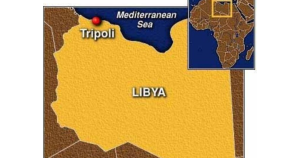Greta Barbone*, Brussels-Rome, 27 January 2014
Yesterday evening, the Tunisian National Constituent Assembly adopted a new Constitution. This is a milestone for Tunisia and for the history of the Arab region, strengthening the voices of those who are advocating for democracy in other countries in the region. The last month of negotiations has been hectic, inside and outside the Constituent Assembly. While the political leaders focused on finding agreement on each of the many outstanding issues with voting on the new text, Tunisians have been following this process closely, making their voices heard through demonstrations and strikes asking for human rights to be recognised in their charter.
The constitutional process, which was initially supposed to be concluded by 23 October 2012, has lasted longer than anybody expected. The negotiations have witnessed some critical moments of the Tunisian history, which have had a deep influence on the drafting. The escalation of political violence culminated in the assassinations of Chokri Belaid and Mohamed Brahmi in February and July 2013 respectively, prompted strong demonstrations against the Government and created two profound political crises that stopped everything in the country, including constitutional drafting. However, members of the Government, the opposition and the Constituent Assembly were able to overcome the stalemate and to find an agreement on the way forward, which in itself demonstrates the remarkable resources of Tunisians.
The violence and political turmoil of post-revolutionary Tunisia affected social and political life in various ways, including by uniting and strengthening the voices of the opposition. This in turn has had an important impact on the text of the Constitution, which reflects the profound diversity of Tunisian culture, resulting in a complex articulation of the Tunisian values. The last weeks of drafting, while seeming to delay the process, were essential to allow members of the Constitutional Assembly to find ways to strengthen the protection of human rights.
In the past weeks, many have rightly praised the draft text that emerged from the Constitutional talks as one of the most advanced in the Arab world in particular in respect of the fact that it rejected Sharia as a source of law. Also, Tunisian Constitution recognises rights and freedoms more than other constitutional texts in the region; nonetheless, while many universal human rights are now enshrined in the new text, in certain respects a number of these provisions clearly show that it was a difficult compromise. A number of articles still contain excessive restrictions and the general clause allowing limitations to the rights and freedoms risks its application falling short of international human rights standards. For example, this provision provides that limitations that would affect the essence of the rights cannot be imposed by law, but it does allow limitations for “moral reasons” (article 48). This reference to morality may result too easily in an erosion of these rights precisely for the sort reasons that human rights advocates sought to avoid by vetoing reference to Sharia as a source of law.
It is also regrettable that the Constituent Assembly did not take this opportunity to elevate to a constitutional provision the “de-facto moratorium” on the death penalty which has been in place since the ’90s, particularly in the wake of Tunisia joining UN General Assembly Resolution 67/176 “Moratorium on the use of the death penalty” on 20 December 2012.
The provisions relating to religion were at the centre of an intense debate inside and outside of the Constituent Assembly. In the current text, while the Sharia is never mentioned, Islam is stated to be the State Religion (article 1), and the State is expressly recognised as the guardian of religion and protector of the sacred (article 6).
Women’s human rights were also much debated. The final text recognises the equality between female and male citizens in rights and duties (article 20) and enshrines the commitment of the State to ensure women representation in the elected assemblies (article 33). This is a hard-won and commendable success by women’s human rights groups. Since the Bourguiba’s era, Tunisian women have enjoyed more rights and freedoms than women in other countries in the region. However, the Islamist post-revolutionary Tunisian Government seemed less committed to the human rights of women, which appear to tolerate an increasingly bold attempts to impose restrictions on their freedoms, including for example by requiring women to wear the veil against their will or intimidating them for conduct considered “immoral”. Hence the importance of enshrining these rights unequivocally as part of the Constitution. Hopefully policies and practices in the new Tunisia will mirror these guarantee.
As this brief analysis of some articles shows, the text of the Tunisian Constitution is the result of intense negotiations to find a compromise to the many contentious views and opinions that coexist in Tunisian society. The preamble and 146 articles that compose it are among the most progressive in the region. The Constitutional Court, to be established for the first time in the country, will have a fundamental role and responsibility in interpreting its provisions coherently and in a way that upholds the ideals that sparked the Jasmine Revolution as Tunisia rebuilds her future. As Tunisia’s Parliamentarians did last night, the world should be applauding the country that both sparked the Arab Spring and is leading the way in being true to the principles underpinning it.
* Greta Barbone is Senior Associate and former Tunisia Project Coordinator of No Peace Without Justice. In 2011-2013, she has been based in Tunis, on secondment from NPWJ to Al-Kawakibi Democracy Transition Centre (KADEM). In this capacity, she has been coordinating a 2-year project to support the Tunisian transition to democracy through transitional justice jointly implemented by NPWJ and KADEM and has also been working on NPWJ’s broader engagement in the country.
For further information, please contact Greta Barbone on gbarbone@npwj.org or +39 06 68979262 or Nicola Giovannini on ngiovannini@npwj.org or +32 (0)2 548-39 15.
Visit also the special section on NPWJ and KADEM’s work in support of on transitional justice in Tunisia.




